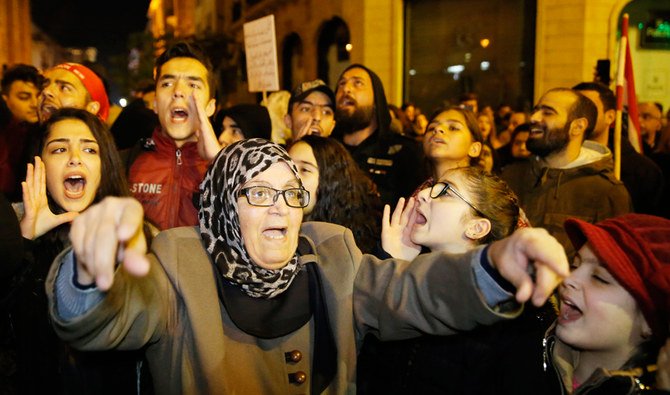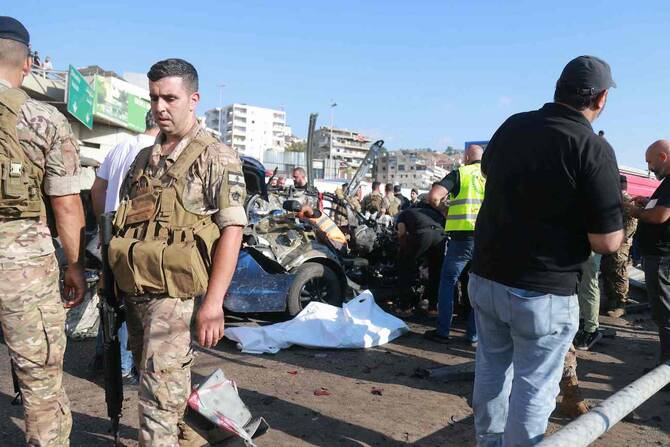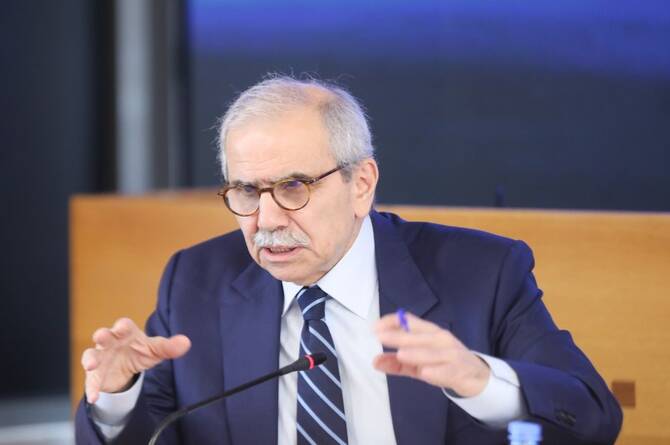BEIRUT: All roads to solving the political and economic crises in Lebanon appeared to be blocked on Monday.
Queues reappeared in front of banks after the weekend, as people waited to withdraw the maximum amount allowed. The permitted amount for withdrawals has been decreasing weekly and has now reached $100. Moreover, the dollar exchange rate on the black market is more than LBP2450, while the official rate is around LBP 1517.
Rumors that household gas supplies may soon be cut due to the financial crisis drove people to queue up at filling stations to buy this basic heating material.
eople also fear that internet service may be interrupted in the coming months because Lebanon is unable to pay for its use.
An insurance company official said a new phenomenon was that the Lebanese are resorting to keeping their deposits out of banks. He explained: “The demand for safe deposit boxes inside banks has grown and their annual rent increased to $175.
People who anticipated the crisis and withdrew their money from banks are asking to deposit it again in their own safe deposit boxes in the banks for fear of robbery at home.”
The confused handling of the political crisis has prompted the return of street protests after a three-week lull. During the weekend, groups of activists chased some politicians out of restaurants, cafes, and shops, including the minister of defense in the caretaker government, Elias Bou Saab, the minister of public works, Youssef Fenianos, and Future Movement MP Sami Fatfat.
Tents were set up in the courtyard of the Rachid Karami International Fair in the northern city of Tripoli by an activist group calling itself “The Gifts of Lebanon” to house 35 women and children.
The group said that these people “have no shelter because they could not pay their rents due to the very difficult living situation.”
The minister of labor in the caretaker government, Kamil Abu Suleiman, said: “We are seeing more companies declare bankruptcy and citizens lose their jobs,” he said. “There is a huge budget deficit and it is on the rise because revenues are shrinking. We have to resort to capital control in a codified form to protect banks and prevent discretion in dealing with depositors.”
The minister of labor revealed that Lebanon must reach a public debt that constitutes about 75 percent of the GDP, while it presently stands at 150 percent.
Furthermore, the chances of forming a new government are diminishing as supporters of the prime minister-designate, Hassan Diab, gradually abandon him. Parliament Speaker Nabih Berri told the Press Syndicate delegation that Diab “refuses to appoint ministers from political parties in the government, although he received the support of 4 party blocs.”
Berri considered that “the prime minister-designate set conditions for himself that were not required of him, which made the government formation process difficult for him. I will support him, but it is not necessary for me to participate in the government.
“The prime minister-designate remains committed to forming a government of technocrats. He refuses to abandon his mission, and there is no legal mechanism to withdraw his assignment by the allies who nominated him.”






















